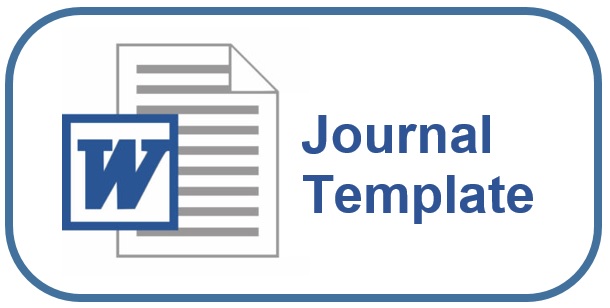Manajemen Stres Akademik pada Remaja dengan Progressive Muscle Relaxation (PMR)
DOI:
https://doi.org/10.36277/abdimasuniversal.v5i2.307Keywords:
PkM, Stress, Progressive Muscle relaxation (PMR)Abstract
One of the causes of stress in adolescents occurs at school. Academic stress on students due to learning activities such as skipping school, leaving class hours prematurely, arriving late to school, collecting late assignments collected, and quitting school because they are unable to follow the learning in the chosen Department. Academic stress can lead to depression if not treated properly. Progressive Muscle Relaxation (PMR) can effectively reduce academic stress, control anxiety, and tension. The purpose of this Community Service (PkM) is to improve students’ knowledge about stress and how to manage stress with Progressive Muscle relaxation (PMR). The target of this PkM is students of Class XII Department of modeling design and Building Information (DPIB) SMKN 01 Sungai Raya, Kubu Raya, West Kalimantan. This PkM implementation method includes stress discussion and simulation of PMR techniques. The evaluation results after students perform PMR simulation obtained 41.2% feel relaxed, 26.5% feel comfortable, 20.6% feel calm, and 11.8% do not feel any change.
Downloads
References
Anuar, Muhammad, & Sulaiman. (2019). Efek Relaksasi Otot Progresif pada Stres Akademik Siswa. Jurnal Psikologi Pendidikan & Konseling: Jurnal Kajian Psikologi Pendidikan dan Bimbingan Konseling, 134-140.
Carisa & Octavia. (2022). Effect of Progressive Muscle Relaxation on Anxiety Level of Medical Faculty Students in Indonesia. e-CliniC, 10 (2), 250-256.
Darmayanti, M. (2019). Pelatihan Manajemen Stres untuk Meningkatkan Kebahagiaan Santri di Pondok Pesantren Uswatun Hasanah Labuhan Batu Selatan.
Erford, B. T. (2016). 40 Techniques every Counselor Should Know. Yogyakarta: Student Library.
Fernandes, F. (2014). Penerapan Terapi Kelompok Terapeutik dalam Menstimuli Perkembangan Remaja dengan Pendekatan Model Stres Adaptasi Sturat dan Model Promosi Kesehatan. Jakarta: FIKUI.
Izzati, Fatwa, & Hadi. (2020). Academic Stress Scale: A Psychometric Study for Academic Stress in Senior High School. European Journal of Education Studies, 7(7), 153-168.
Kemenkes. (2019). Penyebab Stres pada Remaja. http://www.p2ptm.kemkes.go.id/infographic-p2ptm/stres/page/9/apa-saja-penyebab-stres.
Kupriyanov, R., & Zhdanov, R. (2014). The Eustress Concept: Problems and Outlooks. World Journal of Medical Sciences, 11(2), 179-185. doi: 10.5829/idosi.wjms. 2014.11.2.8433.
Maghfirah. (2015). Relaksasi Otot Progresif Terhadap Stres Psikologis Dan Perilaku Perawatan Diri Pasien Diabetes Melitus Tipe 2. Jurnal kesehatan masyarakat, 137-146.
Maryam. (2017). Strategi Koping: Teori dan Sumberdayanya. Jurnal Konseling Andi Matappa, 1(2).
O’Donnell & Dunlap. (2019). Teacher Acceptability of PMR in the Classroom for the Treatment of Test Anxiety. Journal of Psychologists and Counsellors in Schools, 1-15.
Rahmawati. (2021). Relaksasi Otot Progresif Terhadap Penurunan Tingkat Stres Akademik. Jurnal Plakat, 3(2), 220-229.
Resti, I. (2014). Teknik Relaksasi Otot Progresif untuk Mengurangi Stres pada Penderita Asma. Jurnal Ilmiah Psikologi Terapan, 1-20.
Sari. (2022). Edukasi Relaksasi Otot Progresif Cegah Stres dan Jenuh. Journal Character Education Society, 555-562.
Stuart, G. W. (2013). Principles & Practice of Psychiatric Nursing, edisi 9. Philadelpia: Elsivier Mosby.
Taussaint, et al. (2021). Effectiveness of Progressive Muscle Relaxation, Deep Breathing, and Guided Imagery in Promoting Psychological and Physiological States of Relaxation. Doi: https://doi.org/10.1155%2F2021%2F5924040. https://www.ncbi.nlm.nih.gov/pmc/articles/PMC8272667/.
Utami, d. N. (2018). Pengaruh Pemberian Teknik Relaksasi Otot Progresif Terhadap Tingkat Stres dalam Menyusun Skripsi pada Mahasiswa Keperawatan Semester VIII di Universitas Batam. Jurnal Zona Keperawatan, 69-77.





















